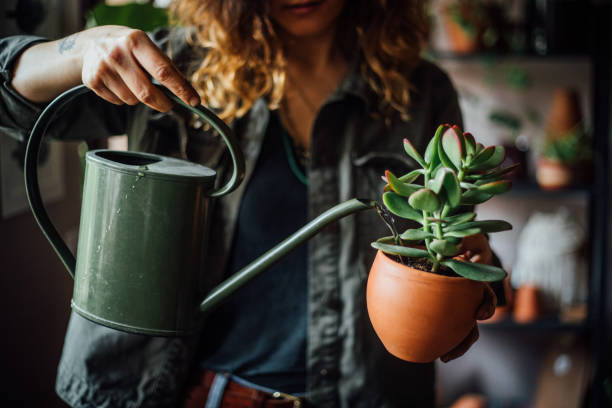If small black flies buzz around when you water your potted plants, then you are probably dealing with an infestation of so-called fungus gnats. Fungus gnats look very similar to fruit flies and are often confused with them. In any case, normal mosquitoes are much larger.
Fungus gnats have small black bodies, however, and are mostly found around potted plants. They multiply in the plant soil. The fungus gnat lays its eggs in the bottom of the potted plant. There the larvae hatch and feed on dead roots and leaves. Sometimes they nibble on young roots and can damage a plant.
How do you know if your plants are infested with fungus gnats?

Fungus gnats usually crawl on the surface of potted plant soil. If you move or water the plant, they buzz. The larvae can be found about 1 cm deep in the ground. They are about 5 mm long, white with a blackhead.
What to do against fungus gnat infestation?
- Repot affected plants. This reduces larvae infestation.
- Cover the surface of the potting soil with a 1-2 cm thick layer of quartz sand. The insects do not lay their eggs in the sand.
- Fungus gnats love wet soil. So keep your plants as dry as possible. Always water from below.
- Keep your plants free of fallen leaves. The insects feed on dead plant parts.
- Lay yellow sticky paper around the infested plants. There are also yellow boards or yellow stickers available in stores. The insects are attracted to the bright color and stick to the panels.
- For biological pest control, there are SF nematodes (Steinernema feltiae nematodes) and BTI (Bacillus thuringiensis israelensis). Nematodes are tiny roundworms that feed on the sciarid larva. BTI is a bacterium that produces so-called stomach poison and kills the larvae. Both beneficial insects are harmless to humans and pets and are freely available in stores.

- Check any newly potted plants for infestation before bringing them indoors.
Fungus gnats are annoying little pests that can spoil the fun of your potted plants. But don’t despair. With the tips and tricks above, you can get rid of the little black flies in no time at all and be able to enjoy your plant splendor again.
